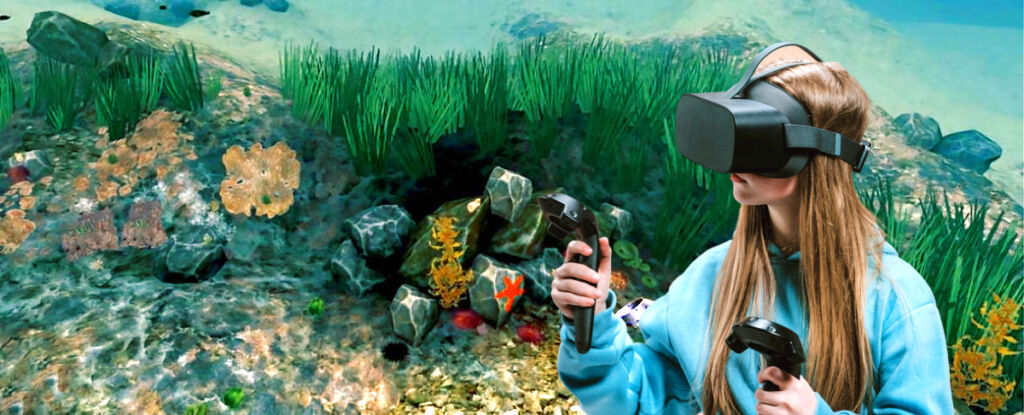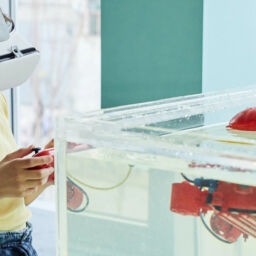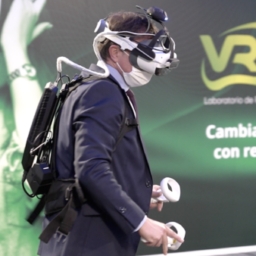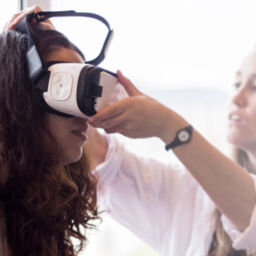
Immersive technologies such as virtual reality contribute to sustainability
Immersive technologies such as virtual reality have been implemented in companies and organizations from different sectors with the interest of taking a step forward in technological development that allows them to improve their products and services and offer better experiences to their customers and users.
But along with this exploration, there has also been a growing interest from these institutions to make use of immersive technologies to support social causes and solve problems in a transformative way, positively impacting their community.
This is how today immersive technologies in their various formats are accompanying key processes to meet several of the Sustainable Development Goals (SDGs), as is the case of SDG#11, which has been formulated to promote the sustainability of cities and communities through more inclusive, safe, resilient and sustainable spaces.
According to the UN, since 2007 more than half of the world’s population has occupied cities, thus increasing to 60% by 2030. Additionally, there are challenges to face today in terms of inequality, energy consumption, pollution, carbon emissions, among others, that demand economic and functional practices that improve the quality of life with a better vision of the future. And this is where immersive technologies make their great contribution.
The singularity of virtual reality to modify the habits and behaviors of society towards a more responsible and sustainable consumption is due to its ability to place the user at the center of the action, since they go from being a spectator to becoming the protagonist of a reality where your actions have a consequence and allow you to reach a reflection.
Immersive technologies and THEIR CONTRIBUTION TO SUSTAINABILITY
Immersive technologies can contribute not only to a particular SDG, but have the potential to address all the development problems that are expected to be promoted in the different countries of the world.
This sustainable innovation responds to all the Objectives of the 2030 Agenda, offering the opportunity to build an innovative reality, based on digital imagination environments that guarantee that everything that is developed under the virtual universe contributes to avoiding expenses in mobilizations and transfers, construction of structures and the ability to use polluting materials in a more efficient and environmentally friendly manufacturing chain.
Additionally, the use of virtual laboratories is available and subject to the needs that companies have to improve their industrial processes, avoiding the production of unnecessary equipment and minimizing costs, and also allowing them to generate virtual reality projects in a sustainable manner for their application in activities, drills, exercises and product tests for the public.
Virtual reality in environmental protection
Immersive technologies allow experiences that transcend from the physical to the virtual, impacting the way of interacting with the environment.
This means a change in the form of presence that helps prevent damage to terrestrial ecosystems, underwater life and the climate, contributing to their preservation:
VR practices contribute to the reduction of pollution in natural spaces, the preservation of animals and the conservation of endangered species since man is not physically present but virtually.
The protection of ecological wealth is guaranteed, allowing the development of training and exploration models, such as sustainable tourism with blended visits; Visitors to the interior of the place will participate in the immersive experience while they know safe and preserved places.
Digital immersion makes it possible to influence the emotional part of individuals, generating sensations that stimulate the senses, enhance skills and generate behavioral changes with respect to their environment. All this without having to physically interact with natural environments that may be far away or in a state of conservation.
An example is the virtual tours that, through 360 videos and virtual reality, make users aware of places of natural preservation such as natural national parks, not only with the aim of making tourism sustainable, but with the aim of creating awareness about the caring for the planet through a futuristic vision.

Virtual reality for all sectors
At Virtual4 we are specialists in the implementation of immersive technologies with social impact. We are working on projects in different sectors such as education, health, environment, government, culture, among others, to positively impact our society.
If you want to know how your organization or company can use virtual reality for social transformation, contact us here.




